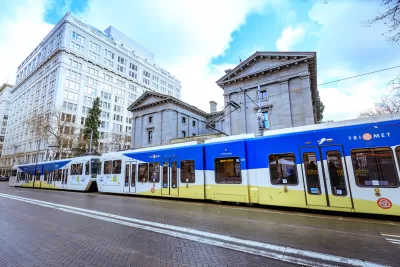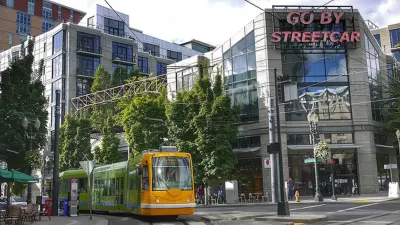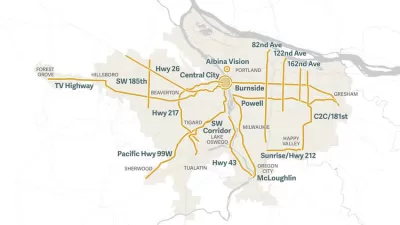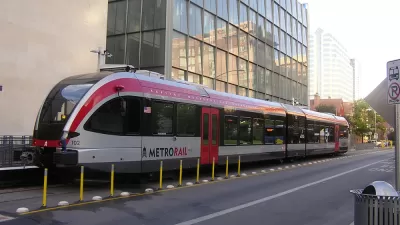A heated dispute over a $5 billion Metro transportation funding ballot measure has erupted between climate activists and a group representing Portland's big business interests.

Portland area voters will decide on a Metro transportation funding measure that could bring a new MAX line running from Downtown to underserviced southwest Portland, allow TriMet to gradually transition from diesel to electric busses, and enable several other "safety, transit, and infrastructure improvements across the Metro region," reports Blair Stenvick.
A 0.6% payroll tax on most employers with over 25 employees on payroll is proposed to fund the work. Due to the economic landscape resulting from the coronavirus pandemic, several big businesses in the Portland metro area have banded together to oppose the measure.
According to Stenvick, opposition group Stop the Metro Wage Taxt recent advertisement described the measure as "a permanent new wage tax on struggling employers and nonprofits." Multinational corporations like Nike and Intel are among the opponents of the tax.
"But for a coalition of environmental organizations supporting the ballot measure, the transportation improvements it would fund can’t wait for a more economically convenient time. These groups are framing the measure as Oregon voters’ key chance to address climate change—an issue on which the clock is ticking—during the November election," says Stenvick, noting the transportation sector as the largest emitter of carbon in Oregon.
The fate of the measure is in the hands of the voters. BlueGreen Alliance Oregon State Policy Coordinator Ranfis Villatoro wants voters to know that if the measure passes, the payroll tax would not be collected until 2022 and that 91% of employers in the metro area don't have the 25 employee payroll required for the tax.
FULL STORY: Backers of Metro Transportation Funding Measure Say Climate Change Is on the Ballot

Planetizen Federal Action Tracker
A weekly monitor of how Trump’s orders and actions are impacting planners and planning in America.

Restaurant Patios Were a Pandemic Win — Why Were They so Hard to Keep?
Social distancing requirements and changes in travel patterns prompted cities to pilot new uses for street and sidewalk space. Then it got complicated.

Map: Where Senate Republicans Want to Sell Your Public Lands
For public land advocates, the Senate Republicans’ proposal to sell millions of acres of public land in the West is “the biggest fight of their careers.”

Maui's Vacation Rental Debate Turns Ugly
Verbal attacks, misinformation campaigns and fistfights plague a high-stakes debate to convert thousands of vacation rentals into long-term housing.

San Francisco Suspends Traffic Calming Amidst Record Deaths
Citing “a challenging fiscal landscape,” the city will cease the program on the heels of 42 traffic deaths, including 24 pedestrians.

California Homeless Arrests, Citations Spike After Ruling
An investigation reveals that anti-homeless actions increased up to 500% after Grants Pass v. Johnson — even in cities claiming no policy change.
Urban Design for Planners 1: Software Tools
This six-course series explores essential urban design concepts using open source software and equips planners with the tools they need to participate fully in the urban design process.
Planning for Universal Design
Learn the tools for implementing Universal Design in planning regulations.
Heyer Gruel & Associates PA
JM Goldson LLC
Custer County Colorado
City of Camden Redevelopment Agency
City of Astoria
Transportation Research & Education Center (TREC) at Portland State University
Camden Redevelopment Agency
City of Claremont
Municipality of Princeton (NJ)





























